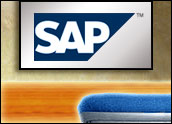
Some weeks there’s just more to write about than other weeks. It’s like the weather — sometimes there just seems to be more of it than other times. Take last week, for example. Just north of Boston some communities received as much as 19 inches of rain — more than you’d get from a hurricane and resembling the rainy season in the tropics. That was a lot of water and for a while, some of us thought of changing the name of our state to something more appropriate, like Panama.
The last few days in CRM have had the same kind of “when it rains, it pours” character to them. Consider what’s happened: RightNow bought Salesnet, Salesforce.com further expanded the definition of the on-demand market, and NetSuite began taking on SAP. Let’s take them in order.
RightNow and Salesnet
RightNow has bought Salesnet and another early promoter of the software as a service industry ceases to be independent. Salesnet went through all of the transitions in a market that was once known as ASP. Like UpShot before it, Salesnet had the disadvantage of trying to compete with Salesforce.com and the genius of Marc Benioff.
Part of Benioff’s brilliance was the way he ignored the companies with whom he was logically a competitor to fix his sights on much bigger prey, Siebel Systems. While UpShot, Salesnet and several others seemed to be competing for primacy in what was then a small market, Salesforce.com was loaded for bear trying to grow its share by growing the market. But perhaps main reason Salesnet is being bought was the tactical error of remaining true to an SFA-only vision.
There is no doubt that there is plenty of demand in CRM for SFA-only solutions, but capturing many of those opportunities requires a broader understanding and integration with other parts of CRM like marketing and service. Salesnet realized this late, and in linking up with RightNow, the company will be able to realize a vision that is more broadly encompassing of the front office.
For its part, RightNow strengthens its offering which has been heavy on the service side, and, at the same time, it captures 2,500 additional installed customers who might very well need SFA at some point.
As mergers go, this one looks pretty straightforward. Salesnet becomes the Boston office for RightNow, which gains a valuable footprint on the east coast. All in all, this was a good deal that brought together complementary product lines and cultures. Stay tuned on this one.
Salesforce.com and AppExchange OEM
Speaking of Mr. Benioff, he’s at it again. This time instead of revamping the CRM market, his project is to revamp the entire software industry. This past week he announced what might be the last step (for a little while at least) in the roll out of AppExchange and his vision of how the software industry will operate in the future.
For my part, let me say that I am broadly on board with AppExchange and many of Salesforce.com’s recent announcements. Back in 2004, I wrote a white paper (which is available at www.BeagleResearch.com) that predicted this evolution. Please treat this as disclosure and only a little bragging.
At any rate, Salesforce.com announced a new program that will enable software developers to develop and deploy applications on the Salesforce.com platform and resell those applications under their own labels. Essentially, this completes a trifecta of sorts by Salesforce.com which placed on-demand computing on a par with traditional licensing. Furthermore, it gives end user companies the ability to use the technology and platform to develop their own in-house solutions, and it supports third party developers who might use the platform just as they would a database and tools.
Two questions arise from this: First, who does this challenge competitively? Second, where is the biggest bang for the buck for Salesforce.com? Here are my guesses.
Benioff has made no secret of criticizing the likes of Microsoft and Oracle (Is he ever going to pick on someone his own size?) over what he characterizes as their old-fashioned application development approaches which includes licensing tools and databases and issuing traditional licenses to customers.
Benioff’s vision has been to take as much of the capital cost out of software development and deployment to make the services that software provides more accessible to more people. In this he is not unlike Henry Ford whose great invention was not the automobile (that came much earlier) but the assembly line. The line enabled manufacturers to dramatically drive down costs and standardize on everything from components to finished products. Because of the assembly line, cars became cheap enough to make the transition from luxury to necessity.
In asking where software can make a similar impact on life as we know it, we come to my second guess concerning where Salesforce.com can get the biggest bang for the buck. I believe that will be in the healthcare market. Many of us who have studied healthcare might think of it as a large opportunity for software vendors, but it is really more like Australia in some ways.
Australia is a huge island continent that because of its location and aridity is home to only about 20 million people — much less than California and about the same as Canada. The healthcare market is really the ultimate long-tail opportunity. There are only about 5,000 hospitals in the U.S. and while that might seem like a lot, there are numerous software companies competing for that business. Think of it this way, Siebel alone had well over 3,000 client companies when it was acquired, and while it was the biggest CRM company there were many other competitors that were doing well.
So why should Salesforce.com enter the healthcare space? The reasons are fairly simple. Healthcare software is expensive and built on old technology, and many of the processes we take for granted in business are still manual and expensive in healthcare. Worse still, there are loads of areas that have not been automated yet. Documentation is important in healthcare and many doctors spend as much as half of their time doing paperwork instead of seeing patients — and it’s real paper too. Ever wonder why there is no such thing as a globally accessible electronic medical record?
This really deserves a separate column but suffice it to say that there is huge opportunity in healthcare for on-demand applications.
NetSuite Takes On SAP
Then there’s NetSuite, and curiously, I thought that Benioff’s shadow loomed over the NetSuite announcement. Maybe there is something in the water in Silicon Valley that makes small companies take on the big guys. Salesforce.com was successful against Siebel and now NetSuite is trying the tactic against SAP. Many of the variables are remarkably similar in the two confrontations that have pitted on-demand upstarts against the entrenched market leader, in this case, SAP.
Now, I like NetSuite and I think they have good products, but you couldn’t help but notice that their attempt to take on SAP lacked much of Marc Benioff’s panache in his anti-Siebel salad days. The NetSuite announcement used the word “Teutonic” in a pejorative manner twice by my count. Say what you want about the merits of the products (and there are plenty) but we don’t need this kind of blatant ad hominem in business. Save it for politics — the prime exemplar for why we shouldn’t tolerate this kind of stuff.
OK, the sermonette is over.
NetSuite has a sizable technology lead over SAP in the on-demand space and since SAP is trying to enter that market, a certain amount of competitive push back is to be expected. I think SAP does not understand the difficulty of transitioning even part of its model to on-demand. It’s a matter of transitioning from a complex systems model to a volume operations model. The alternative is to let the upstart run with it and seek out new areas where their expertise in complex systems can be best put to use. For the best general discussion I have seen on this topic, check out Geoffrey Moore’s new book, Dealing with Darwin.
Meanwhile NetSuite should make plenty of headway in the small to medium market with its integrated on-demand front and back office suite. The firm seems to be putting the right emphasis on addressing the verticals where it can best play and its continued focus on management and metrics should provide smaller companies with the automation assist that many could never afford from a traditional vendor.
It was a very interesting ride last week and it bodes well for the on-demand market and the software industry in general. To me, the unifying aspect of these announcements is that everything is new again and that means lots of new opportunity. What’s not to like?
Denis Pombriant runs the Beagle Research Group, LLC, a CRM market research firm and consultancy. Pombriant’s research concentrates on evolving product ideas and emerging companies in the sales, marketing, and call center disciplines. His research is freely distributed through a blog and Web site. He is working on a book and can be reached at [email protected]






















































